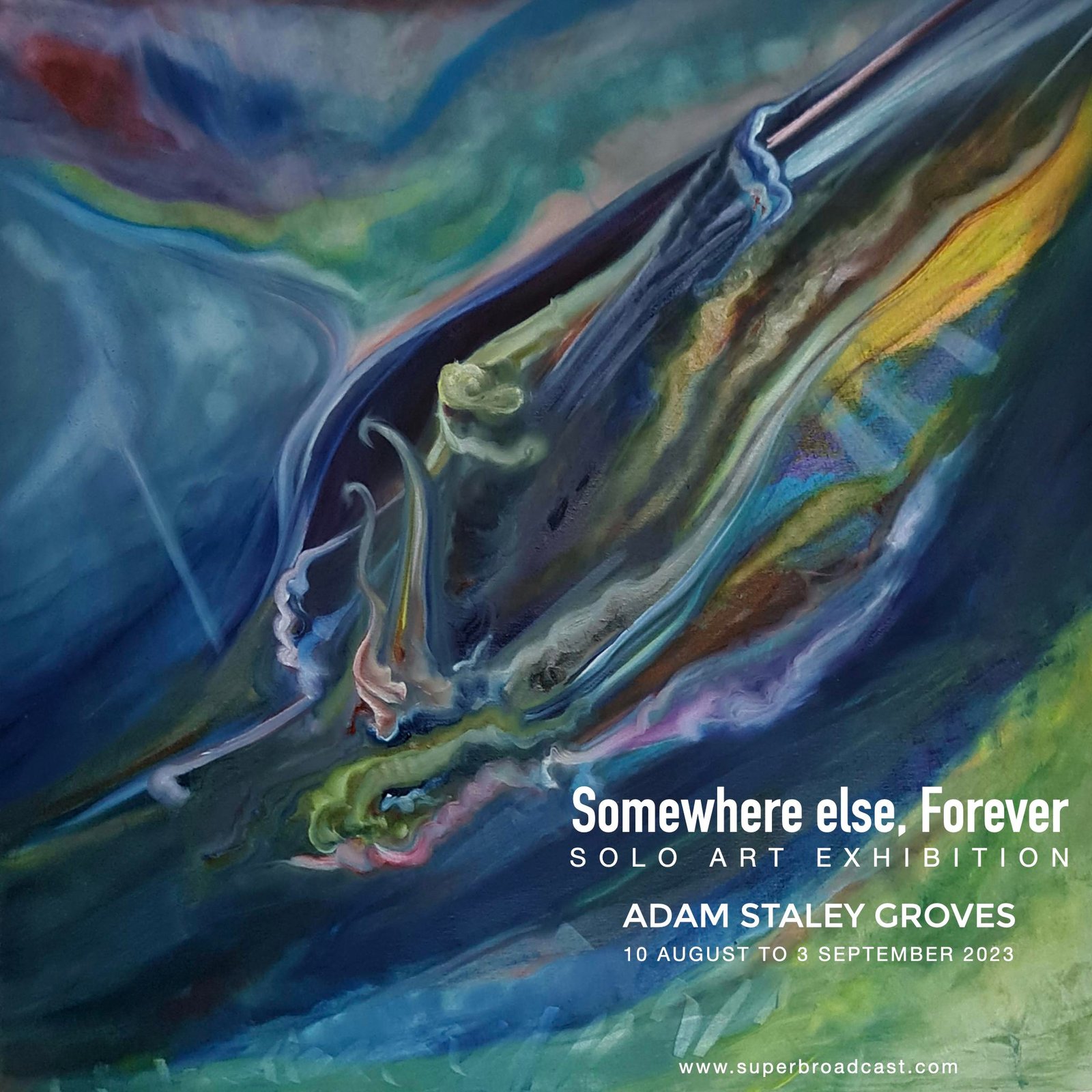"A colorful expression of his landscape of ideas"
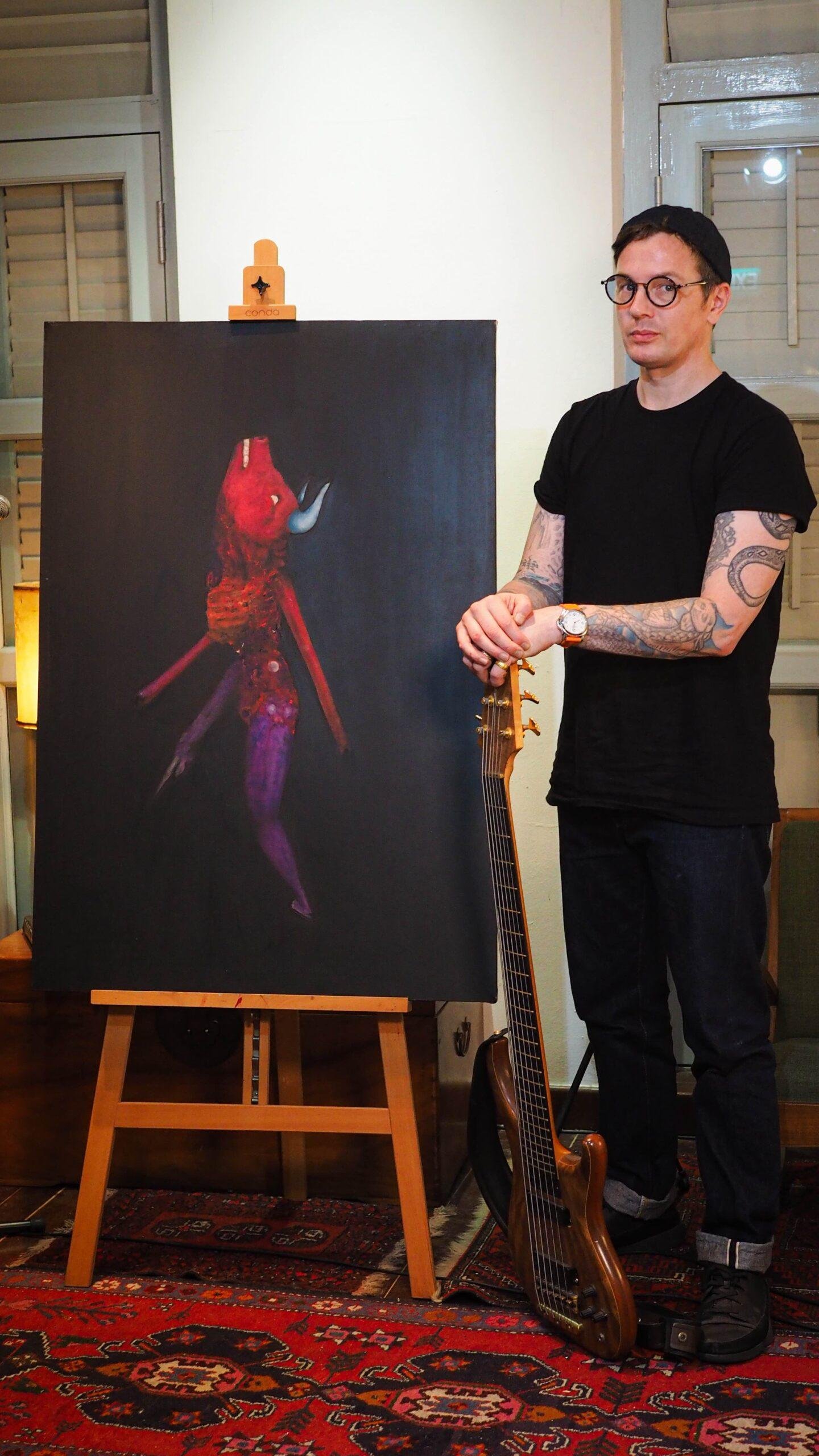
b. 1976, Iowa, USA
Adam Staley Groves
Adam Staley Groves is (usually) an academic teacher, poet, painter, and musician. Originally from the Midwestern United States, Adam has lived, worked, and created in Singapore since 2012.
Beginning his career in journalism and international studies, B.A. (University of Iowa 2005) Adam returned to academia earning two PhDs in Philosophy (European Graduate School, 2011) and Modern Thought (University of Aberdeen, 2016). He is particularly interested in the theory of poetry and 20th century philosophy, having published creative verse, academic prose, and art criticism internationally.
In late 2018, Adam studied oil painting and music alongside bandmate and accomplished artist, Ruben Pang. By 2020, Adam opened his own studio in order to develop his painterly idiom further. A lifelong artist, Adam’s passage to painting is mostly self-taught and by today’s standards non-traditional. He did not attend art school.
Adam adheres to the view of poetry according to his scholarship and lived experience; that the practice of painting means to nurture the imagination and self-understanding in a rapidly changing reality. Painting needs no beginning plan or grand design to be meaningful yet what is presented must be cared for. Meaning is abundant if we attend to what is always within us and move to express it outwardly. More precisely, time shall be mastered by machines yet it is humanity who must find a way to protect the faculty of imagination in our increasingly automated lives.
Thursday 10 August 2023 | 6.00pm
Official opening | by invitation only
GOH H.E Victor H.Rojas
Ambassador of Costa Rica to Singapore
11 August 2023 – 3 September 2023
By appointment only
more info : hello@superbroadcast.com
whatsapp : +65 8501 4359
“SOMEWHERE ELSE, FOREVER”
Somewhere else, Forever means we are always moving through reality. There is always another place or multiple places we are tethered to. At the exhibibition, the visitor can expect to engage and hopefully enjoy the work of art which means, the work of having community.
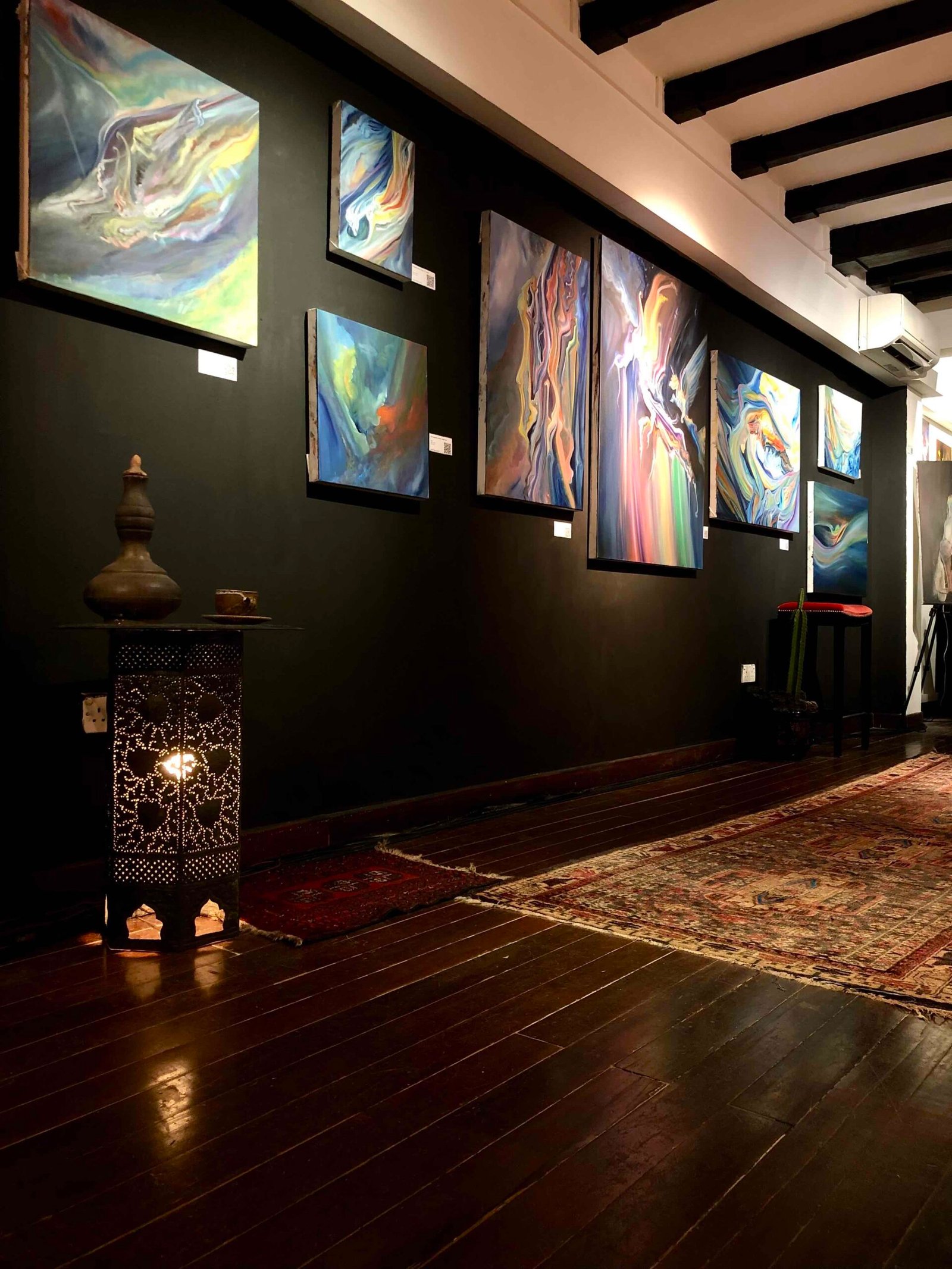
Painting concerns the story of the imagination itself; it is a story Adam seeks to tell through his images. Here painting comes to protect and educate us regarding poetry itself and meaning-making. This story concerns our current epochal shift toward technic; the seemingly hard choice between technological governance as liberty or total domination.

Adam does not view this as an either / or scenario. Specifically, the ethics a practicing painter learns, in particular one attuned to the dictation of the poet, concerns restraint as responsibility for one’s freedom to feel, receive, and instruct the forms of his substrate. Thus as we are continually amazed at contemporary machine-learning capacities, Adam seeks to understand a superior sense of technical magic in relation to imagination and the generation of form: painting without planning thereby accepting what is made in order to developing the forms that were
OFFICIAL OPENING
Another amazing moment at Suite 88 Home of Superbroadcast.
A big thank you to everyone who came to the official opening of Dr. Adam Staley Groves’ first solo exhibition, ‘Somewhere else, Forever.’

Our heartiest appreciation to H.E. Victor H. Rojas The Ambassador of the Republic of Costa Rica for accepting our invitation to officiate the opening.
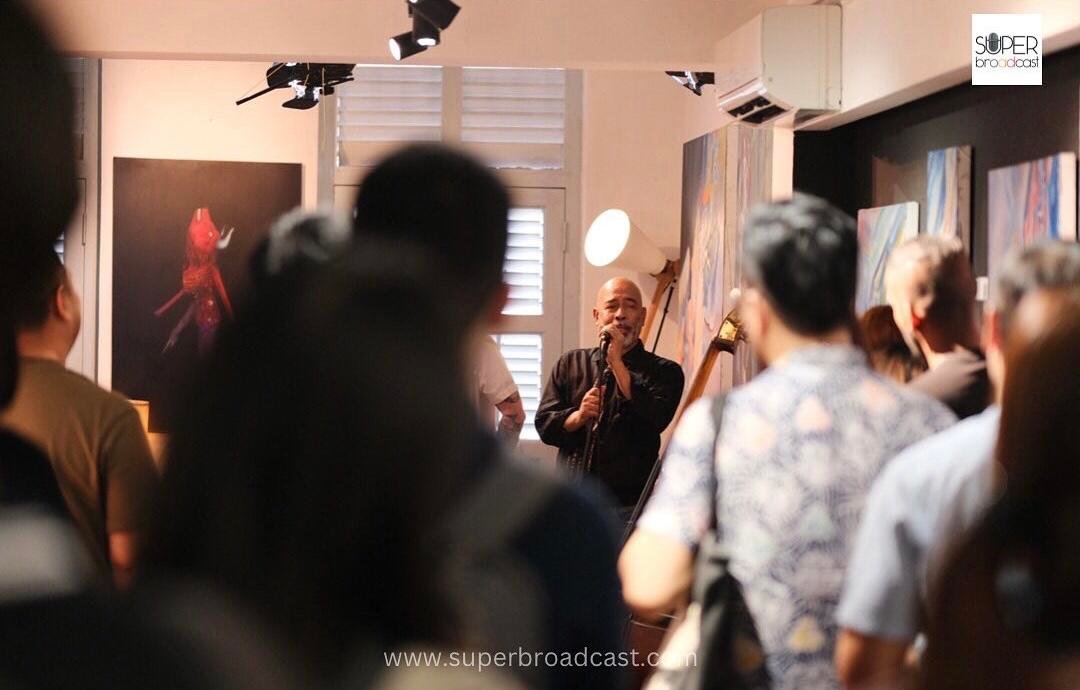
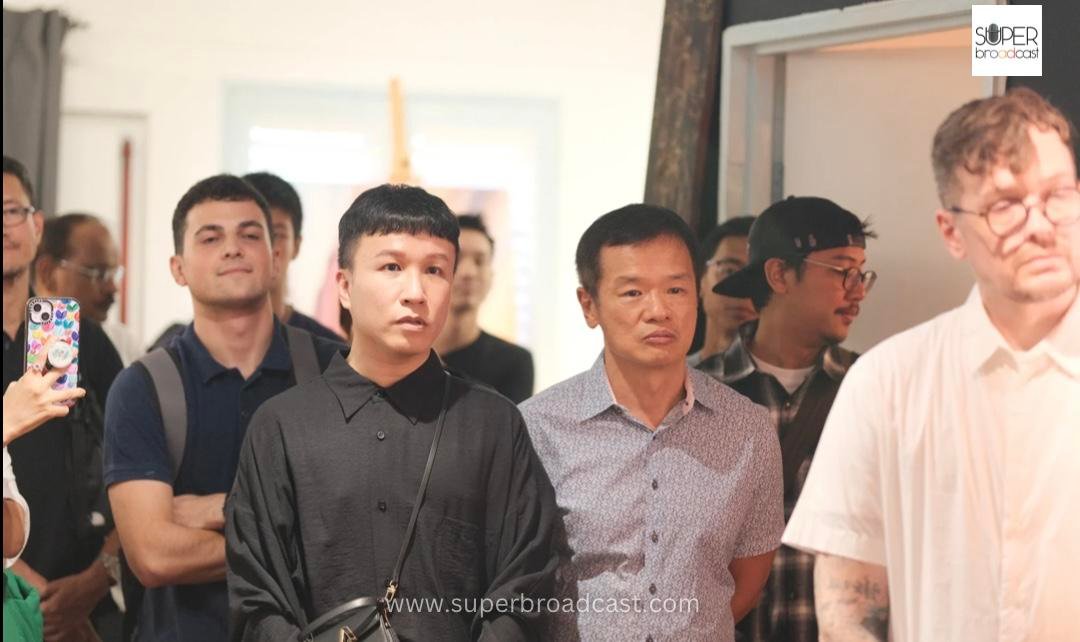

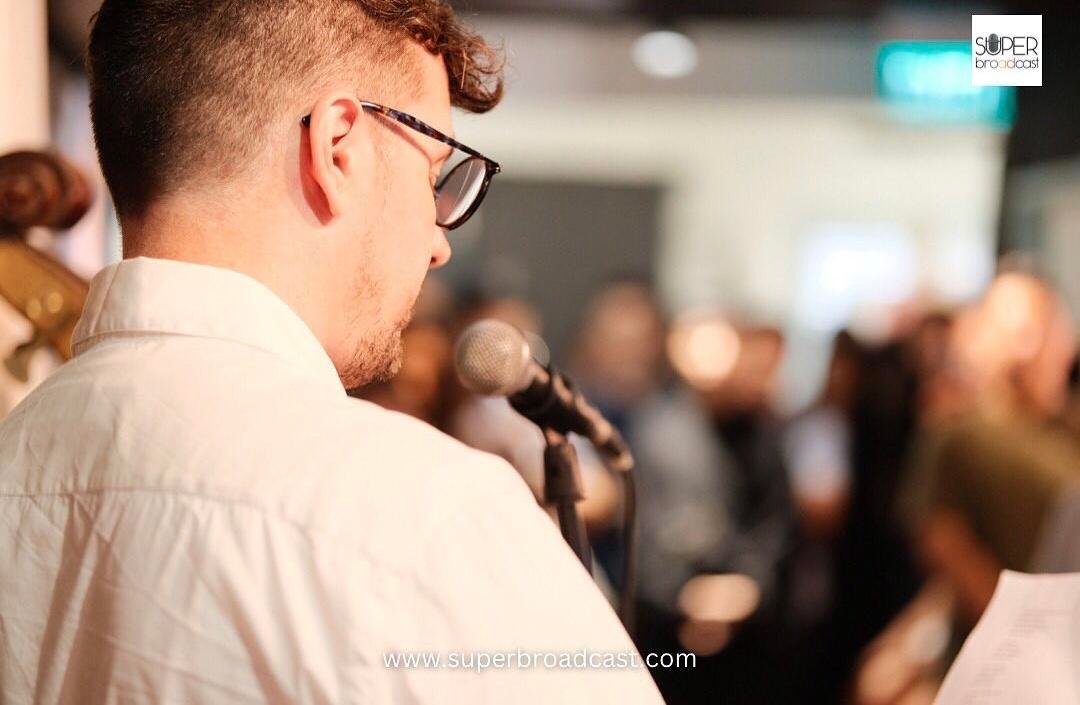
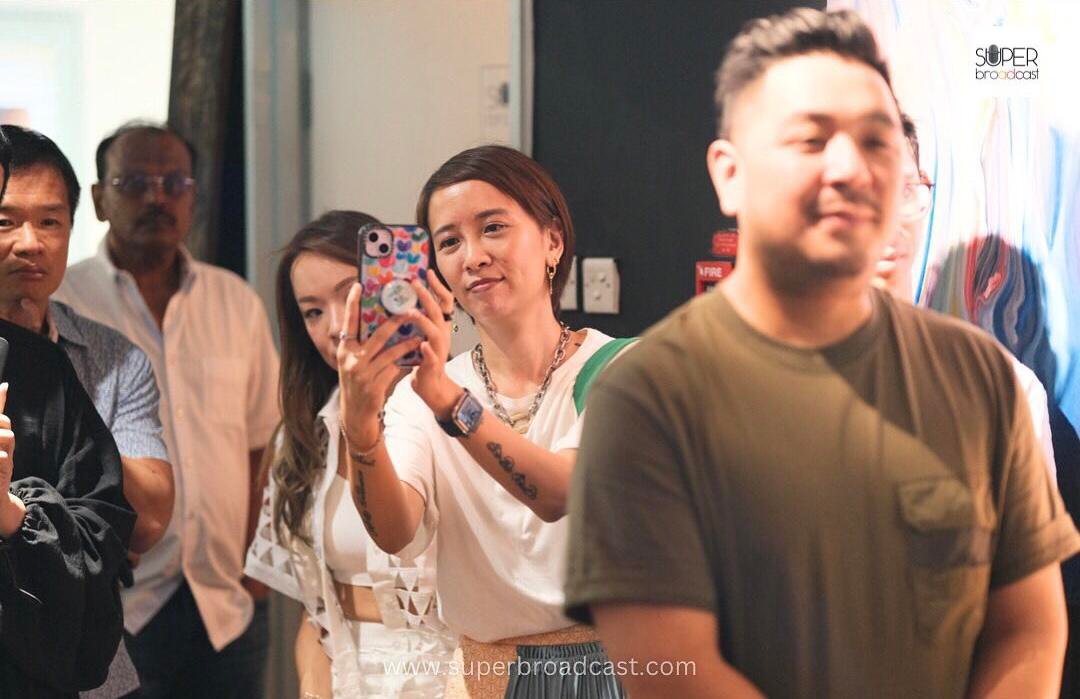

Highlights from the opening of ‘ Somewhere else, Forever ‘first solo exhibition by Dr Adam Staley Groves at Suite 88 Home of Superbroadcast
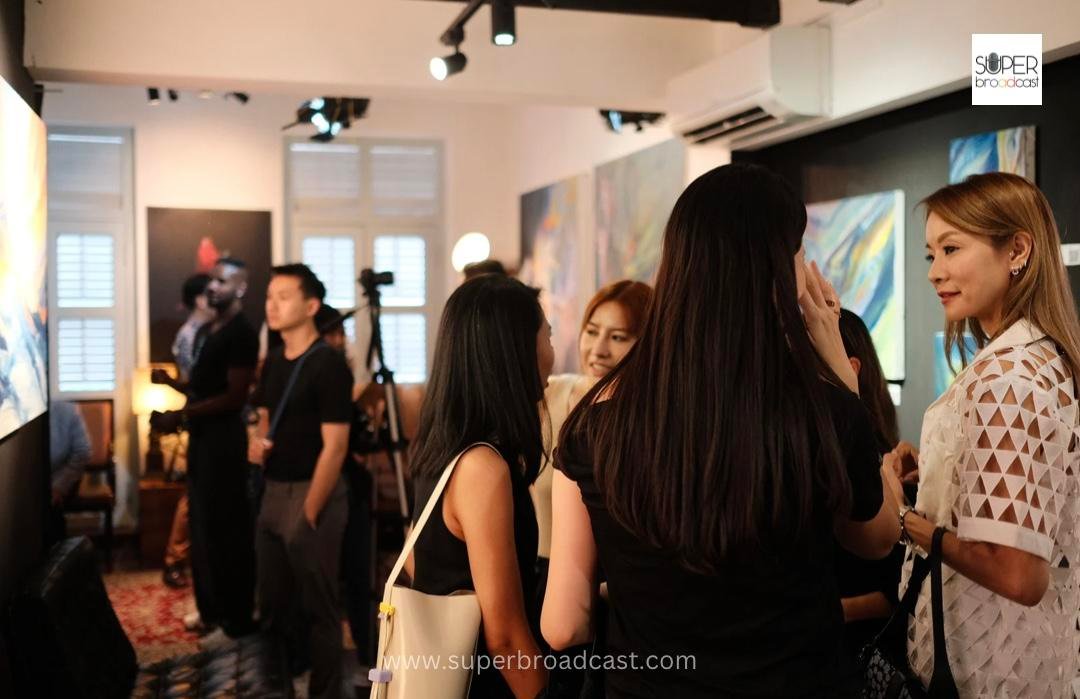
Artist Statement

The relation between thing, locale, and human may be considered logically. Logic seeks to resolve relations between subject and object, between object and observer: art, place, human. Yet relation itself is something more: How are things in relation in the first place?
What exceeds logic is poetical. Something is poetic when it cannot be fully defined or resolved. Poetry itself is operative in all relations and we know it by poetical experience. Poetry is in all that we do, it concerns spirit. Poetry is for humanity, it concerns the soul. For this we are never fully defined
This may vex the realist yet an atheist cannot exist without belief; they believe in something too – not believing. I shall blame Plato. It was he who left us with the concept of “the Good,” a changeless Form exceeding space and time. To me Plato’s “the Good” meant poetry itself; not the poetical but poetry itself. Yet Plato was hostile to poets declaring they should be banned from the Republic. Why? Poets expressed a relation to the Good contrary to his idea of Order – that is, the role of philosophers, artisans, and the like.

We are far removed from Plato’s time but I ask if we are so from poetry? Poetry is the least technically dependent of the arts. Poetry presents the abstract in the most effortless, profitless sense. Like painting, Plato determined poetry to become an imitation of reality insofar as it concerns what we see, detect, know, and use. Yet Plato felt precise imitation, such as realist painting, was the highest form. Plato in this sense was more critic than philosopher.

A poet’s loquacious effortlessness dispensing advice was not Plato’s only hang-up. Plato feared disorder. Thus didactic poetry threatened his sense of Order. Yet Plato’s truth dispute concerns a difference in method and practice – not truth itself. Plato did not ban poetry, rather poets as they were in his time. Yet I disagree with Plato, the poet does not lie. Then again I agree, for truth is paramount. For me it means the poet should arrive at an ethics in regard to the imagination with specific care for our shared reality.
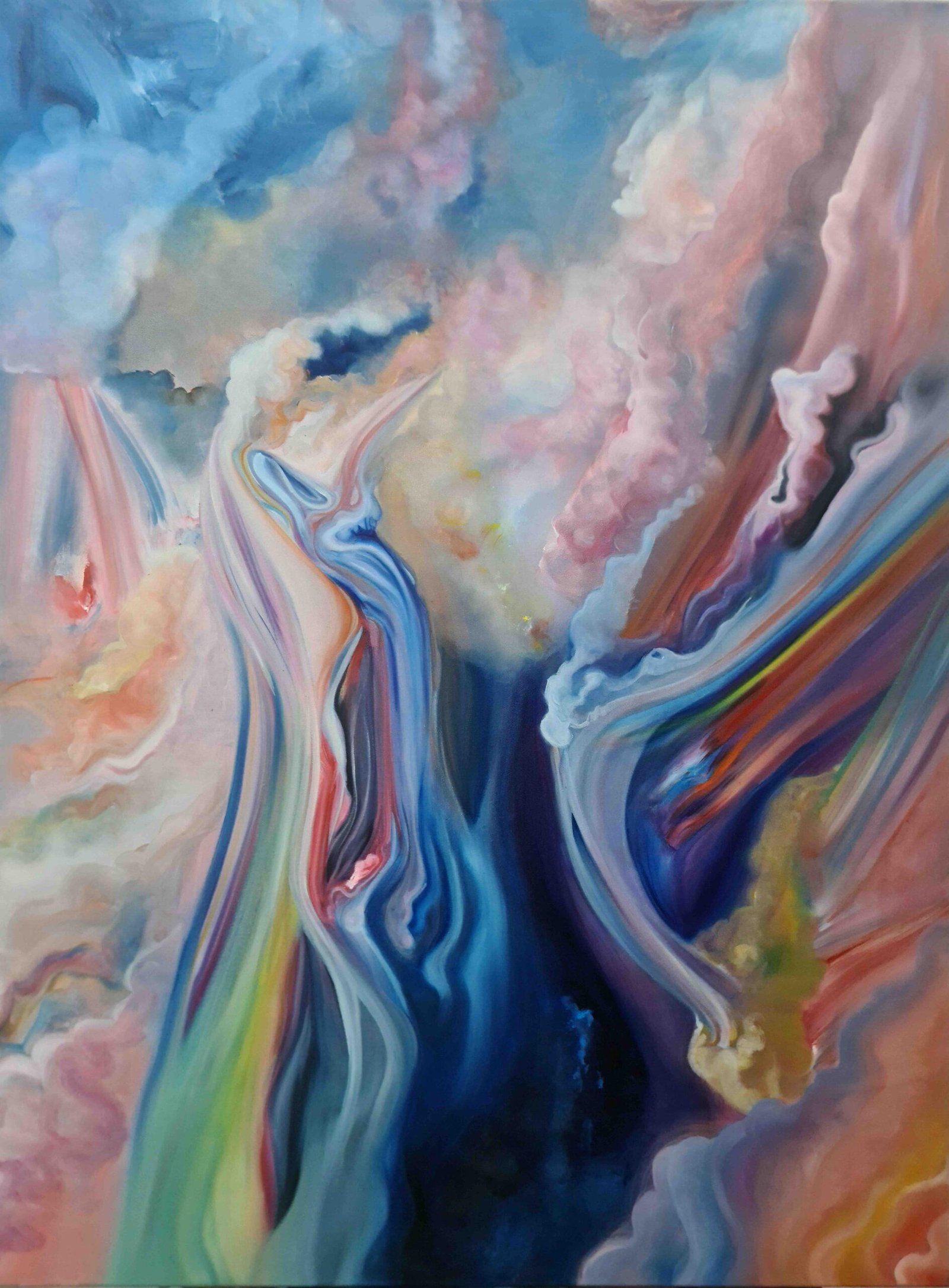
Head in the Clouds – 1 – Happy Fool
36×48 in
oil on canvas
Disorder, the irrational or uncertainty – all eventually stabilize into an appearance by way of conscious observation. Thus if Plato understood artists as mimetic agents the matter also concerns science. Just ask any bored kid in school if they really want more tuition. If they refuse we call it a type of disorder. Thus with painting, philosophy owes its origin to poetry – so too does science.
In my academic career I have annoyed many colleagues with this position. At base the difference concerns method which characterizes subject – object relationality; how one goes about replication or testing results by experimentation. There are arts and sciences up to the point of unintended results or discovery: That is, when we occasion upon a breakthrough; when scientific methods or otherwise touch poetry itself, said Platonic Good, a formless Form, from which human knowledge is made.
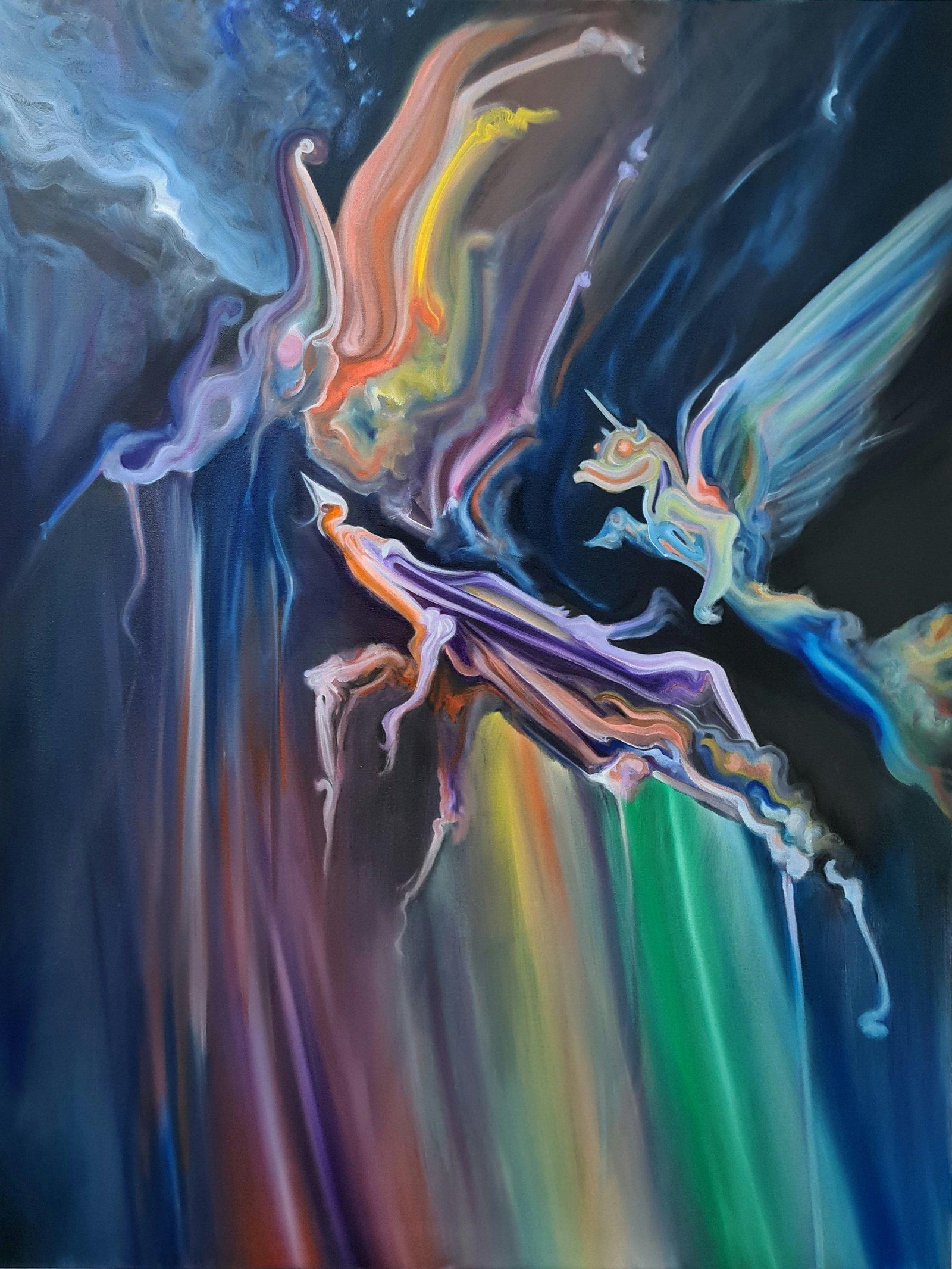
ULDS 3 – Pegasus Meets Beetle
36×48”
oil on canvas
The poet is not always among us; it comes and goes. The poet is reliably fugacious. Yet there is an ordering of the Good poetry offers as disorder. It is firstly irrational in a profound and honest way. When objects of art express truth it is because they reach beyond mimetic realism. In this world we erroneously call such illusion. Science takes a quotidian thing, identifies and reduces divergence to a concept. It is important for knowledge but not the only way to truth. Nonetheless consensus is usually assumed convergent. We tell kids to be creative and at the same time insist there is only one answer. Plato observed the creative destruction of poetry and thus became a critic, harshly so. Yet reality is not exclusive to divergence or convergence – and that is precisely the point of relationality – poetics, the how of any artist. For the truth about reality is that it changes. Reality and fiction are part and parcel.
Today divergence and the imagination are at an asymmetrical disadvantage. For technologies order life more so than ever before. Why? Technologies are superior at convergence, as shown by natural language processing. Some believe technologies are divergent if not living, sentient things. It seems Plato is still with us, in a way, for some seek to ban if not suspend the development of chat bot technologies. This is where poetry’s technological minimality and divergent prowess is a disordering sufficiency. Enough so that it replenishes order to maintain human dignity. This what I have called the ethics of imagination. It is the core reason why I paint.
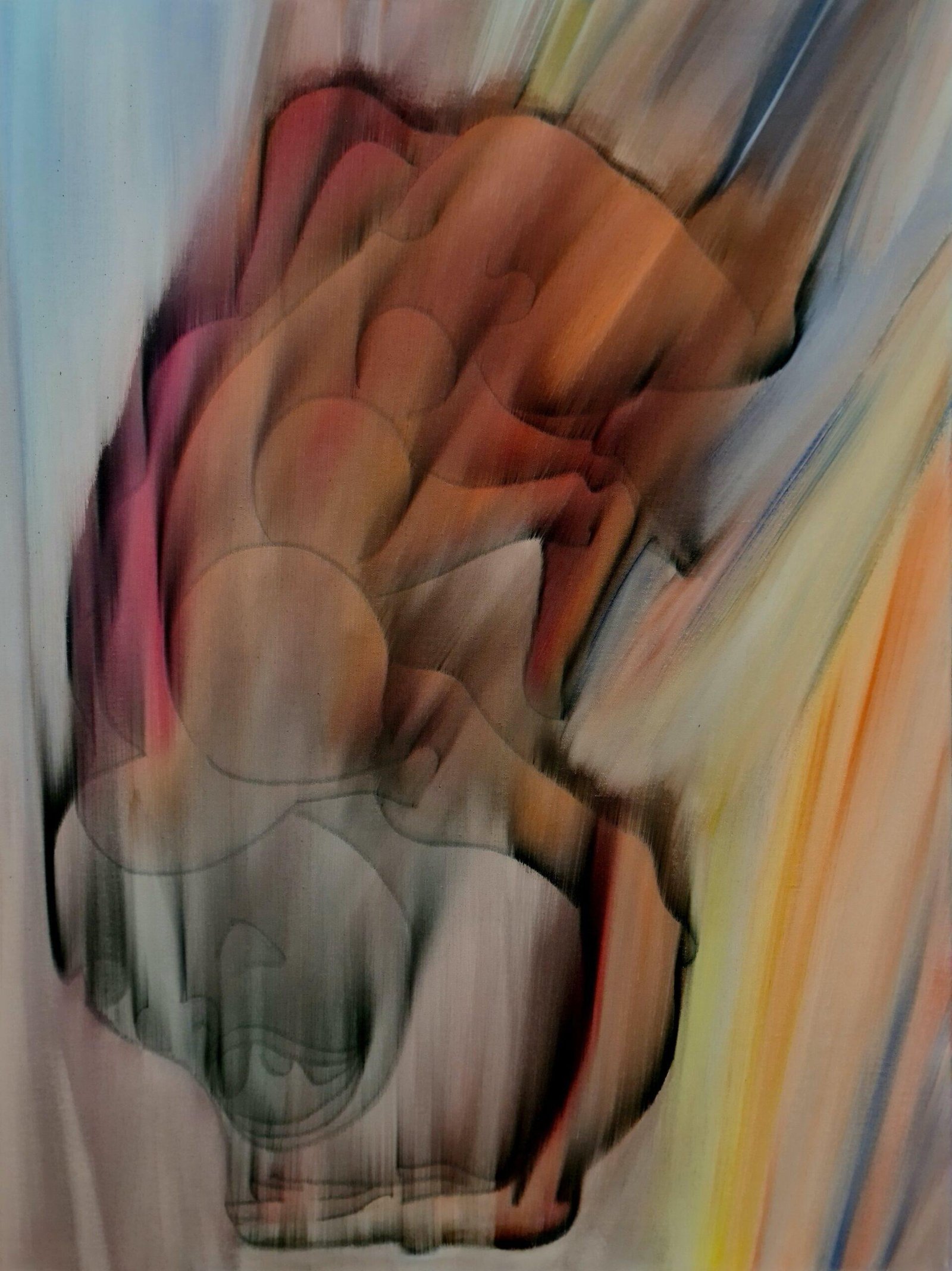
“Sugar Buzz from Watergate Salad”
oil pastel + oil on canvas
40 x 30 inches
A pernicious technological order shall be realized when machines no longer serve our relation to the Good rather stand-in for it, or are considered the Good itself. This is true if we exist only to serve machines and not deploy them for meaning-making. Today do we serve the destiny of technology more than anything else, granting technology a destiny greater than our own? Shall we dedicate ourselves to out-perform machines in regard to rote abilities; becoming machinic? I ask these questions specifically to consider the role of technology in art or AI art but also technoscience which concerns the needs of technology and its expanse more than our science in service to humanity.

ULDS 2 – Infinite Island
48×48 / 122 cm x 122cm
Oil on canvas
Painting is my ethical response to address our inevitable integration with technologies. Ethically, I nurture my relationship to the imagination, for that is meaning-making at base. I present this by way of the paintings. Of course, you can buy the paintings and support this locale in a very real way! But that is not entirely the point. If you are here you are making meaning, on the way to the Good. That counts most.
I paint because of my relationship with the poet. That poet comes and goes. It can be found in anything. In particular, I would not paint if it were not for friendship, a particular friendship. Thus my paintings represent a relationship to the Good, taken-in and cared-for in this locale; co-generatively curated, in the sense of caring-for. Arriving here is tied to a long road of introspection and action. These paintings remark of traversals, technical challenges, and free engagement. They concern imagination, method, and study; over-coming knowledge and hesitation in order to thwart ambivalence; self-steering in a cybernetic moment. Self-reflection and reflections of unknown things, places, and persons. They concern community and friendship.
Thank you.


